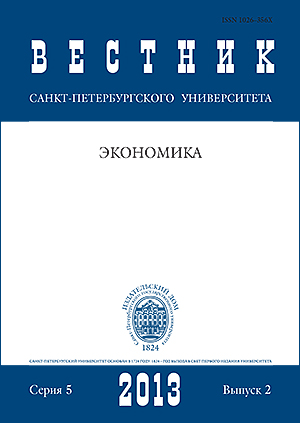Global Crisis and Change in the Paradigm of Economic Development
Abstract
The crisis started in 2008 can be considered to have financial, debt, economic and, above all, sociosystemic character. New industrialization becomes an important stage in the transition from industrial and rental-debt to socio-innovative capitalism. A main measure of its efficiency is the growth of complex social labor productivity, taking into account not only the use of human labor but also utilization of material, energy, natural resources and production capital under the conditions of rational employment, social development and environmental sustainability. The article highlights the system contradictions not solved during the global crisis, underlines signifi cant features of industrial, rental-debt and socio-innovative economy caused by changes in the sources of GDP growth, status of the firm, capital origin and structure, nature of competition, and basic values of society. The author has studied the transition to socio-innovative economy in various countries, and Russia in particular. The paper offers an analysis of publications on the subject published in the leading universities in 2010–2012.
Keywords:
economic crisis, innovation based economy, information economy, capitalism, industrialization
Downloads
References
References in Latin Alphabet
Translation of references in Russian into English
Downloads
Published
How to Cite
Issue
Section
License
Articles of the St Petersburg University Journal of Economic Studies are open access distributed under the terms of the License Agreement with Saint Petersburg State University, which permits to the authors unrestricted distribution and self-archiving free of charge.






